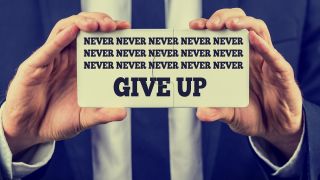Happiness
10 Silly Beliefs that Sabotage Your Happiness
What beliefs can you release to lead a more fulfilling life?
Posted August 15, 2015

I was laughing with friends at a party about the beliefs we used to have that we now know are silly or harmful. Many were at the heart of our failed relationships. Others delayed our success at work.
Beliefs form how we see and judge ourselves, how we see and judge others, and how we see and judge our situations at home and at work. Almost everything we do is driven by our opinions and how we define what is right and wrong or good and bad in our world.
Beliefs are detrimental when we believe them to be absolutely true; most beliefs are merely ideas. We are so confident in the validity of our beliefs we don’t seek to substantiate them. We adamantly argue against or ignore proof that something else could be true. We support them with justifications or don’t question them at all.
What beliefs are you staunchly holding onto right now?
Yes, you need beliefs and convictions to operate efficiently during the day. You can’t stop and question everything you do. But you can make time to look at the relationships and situations that are frustrating, worrisome, depressing, and unfulfilling, and question what beliefs are creating and sustaining your unhappiness.
Many failures result from the behaviors we do or we avoid because of our beliefs. Here are some examples of common beliefs that can sabotage your happiness and success. If you hold this belief, consider the alternative point of view in italics:
- I just have to try harder for people to see how good I am. People will judge you for who you are more than what you do. At work, you have to find diplomatic ways to report on your efforts or they could easily be ignored.
- He or she will change with time. Some people change for a short time, some change for good, but it better not to expect people to change their beliefs and behavior. Accept people for who they are and then take care of yourself.
- I can’t leave the relationship (or job) because finding a new one will be too hard (if it ever happens at all). It is amazing how things turn out for the best when you keep moving forward.
- I do nice things for people so they should like me. Who you are with people—that you acknowledge them, accept them, and respect them—is more important than what you do for them.
- Winning is everything. Having strong, loving relationships in your life is most important to happiness and fulfillment.
- I can’t express how I feel at work. Letting people know when and why you are disappointed, worried, sad, or angry can lead to finding better solutions and stronger relationships.
- There aren’t any significant biases toward women at work anymore. Whether there is blatant discrimination in your workplace or not, unconscious biases still flourish in policies, decisions, and behaviors at work.
- I need to have and stick to a vision and plan for my future. Persistence can lead to success and it can lead to a stubborn refusal to accept change.
- Work will get easier when I finish a few tasks. There will always be more to do. Take regular breaks to do things that relax you and make you smile to balance your busyness.
- People will tell me what they want. People often don’t know what they really want whether they have the courage to ask for it or not.
What beliefs would you add to the list? What beliefs were implanted in your head since you were young by parents, teachers, religious leaders, and friends? These people probably had good intentions concerning your health, success, and eternal happiness, but without proof of their validity, it would be better for you to question if you should still hold on to these beliefs or if it is time to believe something else.
Are you willing to look at your beliefs and what else could be true?
According to Daniel Kahneman in his book, Thinking Fast and Slow, it is difficult to free yourself from beliefs no matter how destructive they are. Your brain resists self-exploration especially when strong convictions are involved. It is better to have someone ask you questions that make you stop and think. You are more apt to examine your thoughts when someone you trust asks you to consider the validity of your beliefs than trying to prick holes in them yourself.
When faced with a recurring source of frustration or a difficult situation, have someone ask you:
- What is stopping you from doing something different than what is not working now?
- What do you absolutely know to be true about this situation as opposed to what you assume is true or speculating will happen?
- Could something else be true or possible?
- Based on what else could be true or possible, what might you do differently to get a different result?
Doubt doesn’t lead to weakness. Doubt leads to growth. What beliefs can you question today?
Find more resources for "outsmarting your brain" on Marcia's website and look for your most common emotional triggers on this list.


